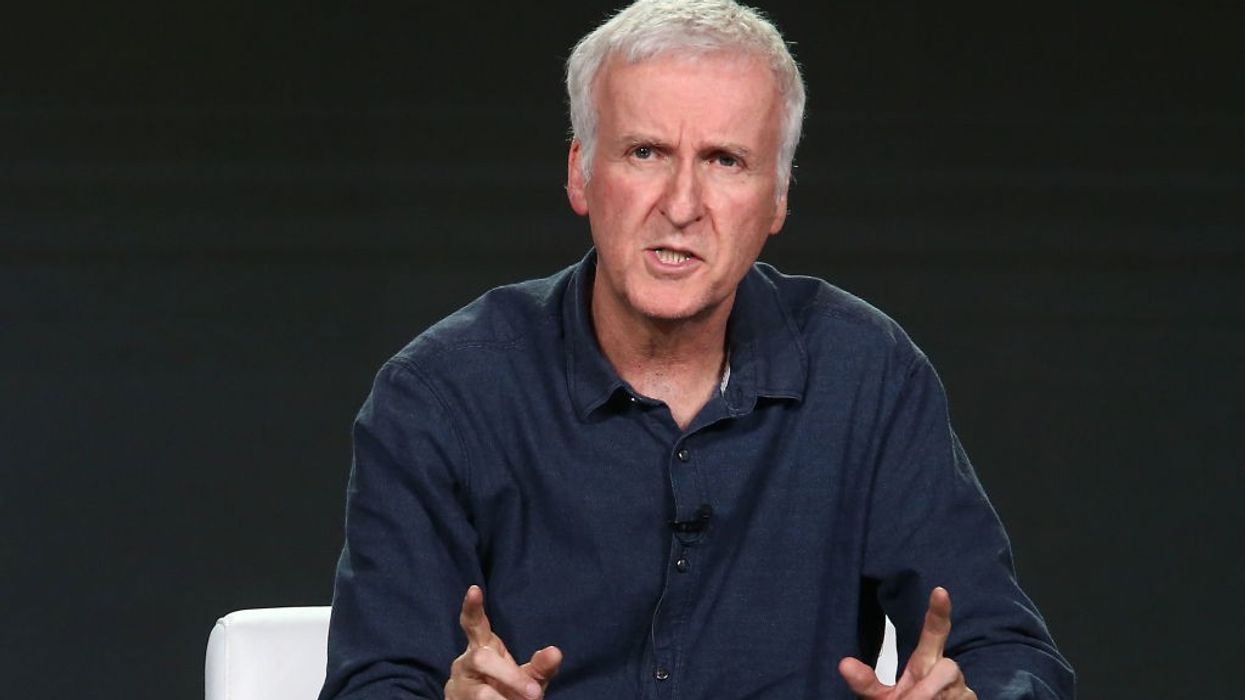Before James Cameron picked up the camera to direct sprawling and culturally-significant films like “Titanic”, “The Terminator” and “Aliens”, the filmmaker says he would spend his time observing nature with a pair of binoculars in his native Canada. It was his curiosity as a young “natural history scientist” that informed his movies, including the ongoing “Avatar” franchise. “Super/Natural”, the Disney+ documentary series on which Cameron serves as executive producer, was an opportunity for him to explore the same theme in real life.
The Oscar winner said he immediately agreed to work on “Super/Natural” when National Geographic reached out to him. In the past, Cameron has collaborated with the network on a number of natural history and documentary series such as “Deepsea Challenge 3D” and season two of “Years of Living Dangerously”.
“A series like this is my attempt to go back to those wonderful memories as a kid in nature. Now other people get to go out into the field and I sit back in the editing room and send them out to capture all the images because I can’t be everywhere at once. But I’m very envious of where they get to go and what they get to do.
“Then National Geographic told us about this one, which they were developing with the UK-based company Plimsoll Productions, I said that’s the one I want to do. This is the one that excites me. And in a way, it’s working out those same ideas that I’m working out fictionally in the ‘Avatar’ films,” the acclaimed director told PTI in a roundtable interview.
Born in the riverside town of Kapuskasing in Ontario, Canada, Cameron said it was not a single incident that attracted him towards flora and fauna.
“I can remember many vivid incidents as a kid. I lived in a suburban neighbourhood in Canada. But two blocks away, the woods started and they went for sort of 20 or 30 miles.” As a kid, the director said he spent most of his time out in nature.
“I was catching everything from bugs to butterflies, frogs, snakes. I would try to see everything I could see with binoculars. Following bird behaviour and all that,” he added.
Also an environmentalist and explorer, Cameron said nature “always blew my mind”.
“I think most children feel a connection to nature and are curious. You put that together, and you basically have a natural history scientist. And then, we outgrow that as we get older,” the 68-year-old storyteller said.
Also backed by Cameron’s Earthship Productions, “Super/Natural” utilises latest scientific innovations and leading-edge filmmaking technology to reveal the secret powers and super-senses of the world’s most extraordinary animals, inviting viewers to see and hear beyond normal human perception to experience the natural world as a specific species does.
According to the director, there is a “higher purpose” to any natural history show. The idea is to keep the imagery so astonishing that a few facts are absorbed by the viewers as a result, he added.
“Our purpose is not just to entertain but absolutely to teach and to show the wonder, majesty, and complexity of nature. Because as a civilisation, we have to modify our behaviour. A lot of these places that our photographic teams were going into are places that are under stress from all kinds of things.
“So we’re going to pull out every trick we know as storytellers to try to get that engagement. It’s all about engendering that respect and in a sense between the lines always challenging the audience to respect nature and help preserve it and conserve it,” Cameron said.
The filmmaker said the six-episode series, narrated by Hollywood star Benedict Cumberbatch, takes the audience into the minds of animals.
“As the creators of ‘Super/Natural’, it was all about attitude. We wanted to have a style and subjectivity to it. A lot of this is new science. So we looked for intriguing new results that had come from scientific investigation.” Citing the example of a creature in “Avatar” film universe called ‘Ikran’, a mountain banshee with near infrared vision, Cameron said it is often easier for people to believe fiction than truth.
“If I created a creature with my designers for ‘Avatar’, and I said it could see in infrared or it could process the world five times faster than we can, so they can see each other flying around in the forest at night, you wouldn’t blink an eye.
“But when you think, oh, that’s a squirrel or lizard, it’s something that we think of as familiar, all of a sudden we’re seeing it in a completely different light, literally and figuratively. And I think that’s exciting.” “Super/Natural” is also not a classic natural history series with the narrator “droning on”, the director added.
“We’ve got Benedict Cumberbatch and he doesn’t just narrate it. He acts it. He gets you inside what’s happening in a way that I think is very relatable,” Cameron said. Showrun by Matt Brandon and Bill Markham, the series is currently streaming on Disney+ Hotstar in India.
(PTI)




